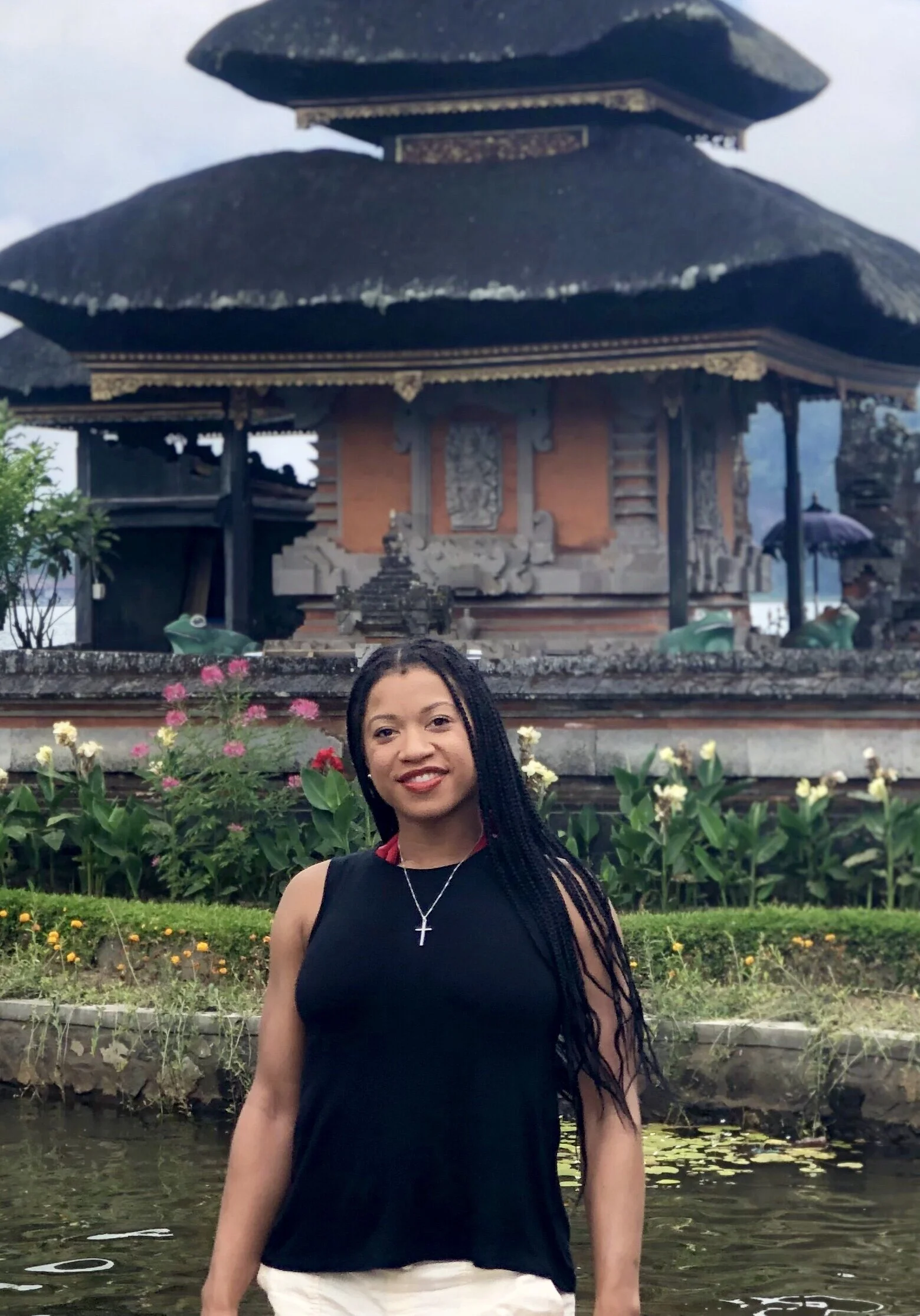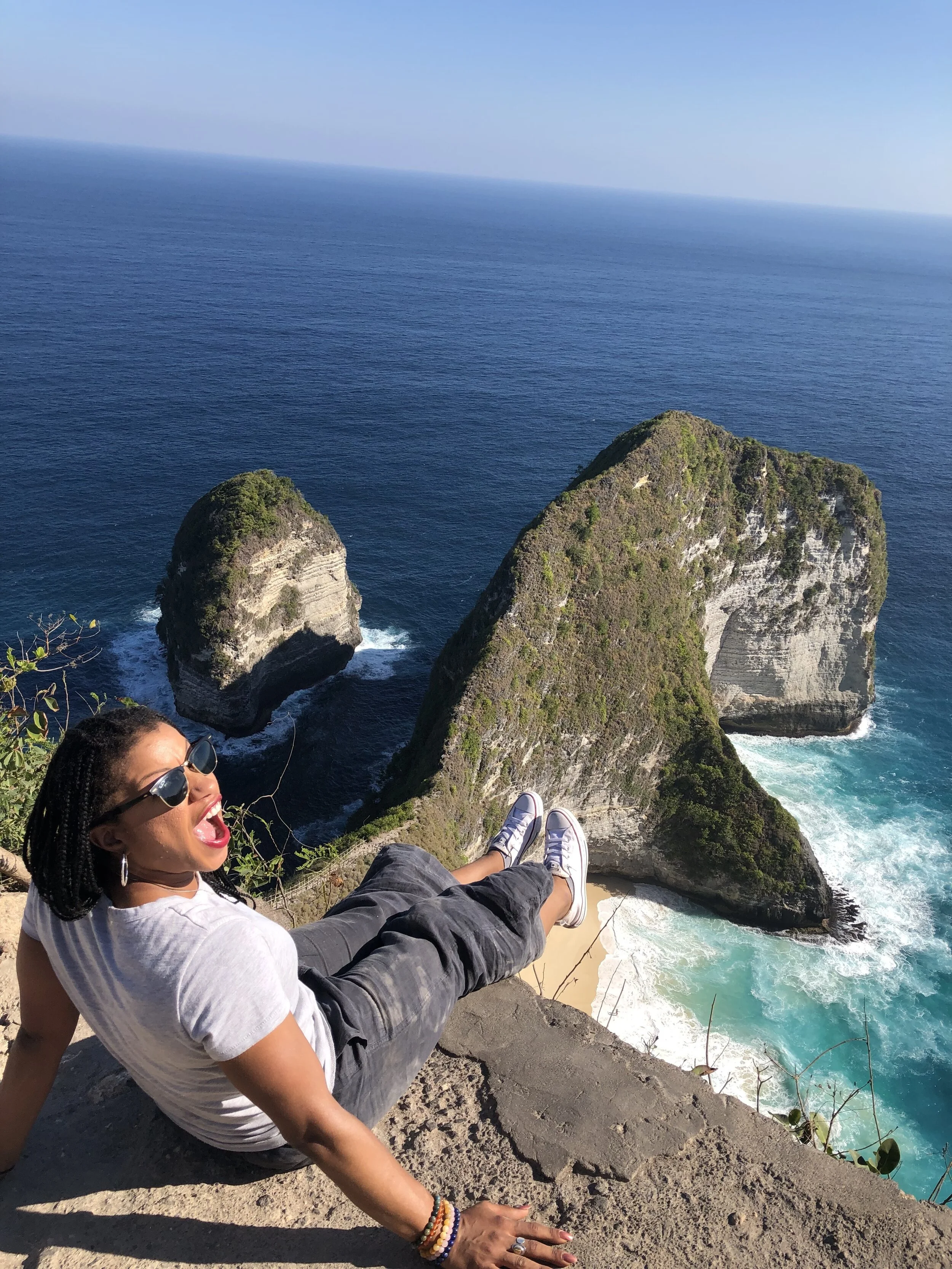Elizabeth Humphrey, Attorney
Hi, Liz! What do you do and how would you describe it to someone unfamiliar?
I am an attorney, and I recently started working for a school law firm. We represent schools, school districts, colleges and universities. It’s a pretty niche area, but essentially encompasses any legal issue that schools have to deal with -- any type of litigation or contract issue that comes up. So like if a school is accused of discriminating against an employee, not providing appropriate accommodations for a child with a disability, or something more serious like an accusation of a campus sex assault and the school is implicated for its response to investigating it. We also do some legislative advocacy.
That is so interesting, and it does sound very niche. So what brought you to this space?
I just happened upon this particular practice area. Before starting with this firm, I was working for a federal judge and I was in that role with the court for five years. My term was ending and I started applying for jobs. My current role seemed cool because it is one of the few places you can practice constitutional law that’s not in the criminal arena. There are so many issues that come up that wouldn’t come up in other sectors -- free speech, academic freedom, discrimination. It’s not set in stone that I’ll remain in this practice area, but I can develop some nice litigation skills that will be transferable. I can grow. Also, I’m an advocate for good work/life balance which I have in this space.
Can you describe your path to becoming a lawyer?
I’ve known I would be a lawyer since I was five years old. I stood up on career day in pre-kindergarten and said “I’m going to be a prosecuting attorney.” In undergrad, I was a political science and anthropology double major. Then I went to the University of Texas School of Law, and took the bar the summer after I graduated. I died a little bit (laughs) and I passed it in November. I came out of law school at a terrible time. The economy was bad, and I wasn’t able to find a job. I was scraping to put something together for those first two years out. I worked with a solo practice personal injury attorney. I didn’t like working with him because he used contingency fees -- basically, eat what you kill. I needed a salary, and there was some inappropriate work behavior from him. After that I started working with a classmate of mine and her mother doing civil litigation. While I was working with them, I started my own firm doing estate planning, tax defense, and some transactional work. I really enjoyed that, and I think I could have made it work longer, but it would have been hard to learn the legal and business aspects of maintaining my own practice.
And throughout that process, what has been a meaningful moment of realization -- good or bad -- that you’ve experienced?
I think one positive is I know more than I realize I know. Someone will ask me a question and my mind will just start working and things come out that I didn’t know I knew or could articulate. I have realized recently that I don’t know whether law is all that I should be doing. I went to law school seeking to integrate my anthropology degree into my practice. I haven’t done that at all. It’s a happy realization but also made me wonder what have I been doing for the past several years. I’m thinking that my current job, with its focus on school law, might be a good opportunity to find overlap. It could be a really awesome opportunity to examine certain cultural issues, and how they intersect with our legal system.
Can you elaborate a bit more on your realization around wanting to integrate anthropology into your law career?
Last Sunday, I was reading an article that referenced Margaret Mead and Franz Boas, and I started crying. I realized this is what I’m supposed to be doing and I’m not doing it. I felt happy and sad. I’m passionate about the human condition, how we create societies, how those societies are reflective of who we are and who we don’t want to be. Law can be so regimented in some ways, and detached from the personal impacts of its application. In that way, it misses the mark a lot of the times. And a lot of the practice of law is tough -- it requires being adversarial, talking someone down for no reason. There are people who can’t eat and don’t have access to clean water. There’s so much more to self-actualization than getting a job that pays the bills. And at the end of the day, I don’t want to spend any part of my life doing something that isn’t meaningful.
What makes you uniquely suited to do what you do?
I think that I’m a good listener. I’m good at hearing what’s underneath what people are saying. I have a curiosity about what people are saying -- just wanting to know why. I think that I’m good at asking the right questions. I’m a good writer, I’m hard working.
What excites you about your future?
Possibility. The fact that I can do anything, honestly. I’ve embraced the concept of “yes, and…” Before, I was like, “I have to quit my law job to pursue anthropology full time!” And now I know that no, I can do both. I’m excited about the fact that anything is on the table -- I believe in myself and that I can do anything at any point in my life. I can be a professor, I can be a judge, I can stay home with my babies. And any way it goes, I’ll be fine.
What is your support system like, and what value do they lend to your life?
Mostly my mom and dad. My parents are very grounding. They have good intuition and a perception of me that is so clear it’s scary sometimes. They provide a lot of affirmation that the questions I’m asking about my life are the right ones to ask. They’re a source of comfort, and assure me that it’s OK not to know everything. They constantly remind me “You are where you are for a reason, and God has you here on purpose. Trust your position.”
My yoga people are very supportive, too. They are fun to be around, and they’re positive. When I’m having a shit day and I’m struggling, they’re like “I get that.” They don’t try to minimize it and they’re comfortable being in it with me.
Given how your own career trajectory thus far, what advice would you give someone seeking to find their own path?
Form relationships! Invest time in getting to know those who are ahead of you, in spaces similar and spaces that are not at all similar to your own. There’s more overlap than people think between industries. Sometimes you’ll hear something from someone in a different arena, and someone may not be having that conversation in your space. So you can bring that knowledge into what you do. Never discount anyone. All people have something valuable to offer even if you don’t think they do. If you’re talking to someone not as far along in their career as you are, it is still valuable because you’re pouring into someone else. There’s value in doing that for that person, and there’s value in feeling good from doing that and knowing that you have something to offer someone.
Please share this post with a friend, and follow us at @BlackWomenWorkIG!


